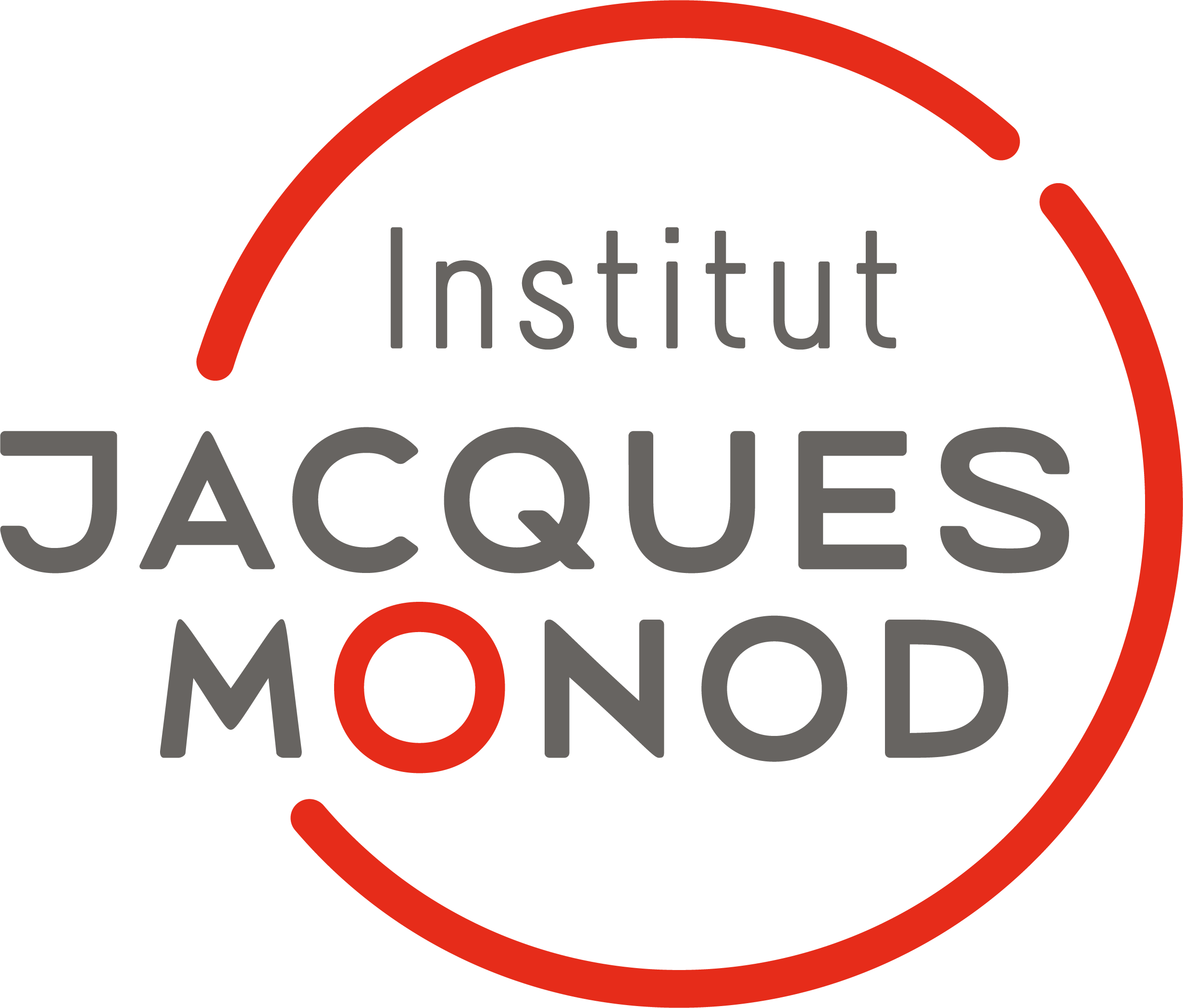For doctoral students
Doctoral schools to which the Institute’s students belong
About fifty students from different doctoral schools and of all nationalities are currently preparing a doctoral thesis at the Institut Jacques Monod. The attention paid to their reception and the application of the thesis charter guarantees a smooth progress of the thesis years.
Doctoral modules are offered to all students, regardless of their university of affiliation, on emerging issues.
Université Paris Cité
Doctoral studies are organized around 21 doctoral schools (ED) covering all Université de Paris (UP) disciplines.
The BioSPC doctoral school is the result of the merger of the B3MI doctoral school at Université Paris Diderot and the Gc2iD doctoral school at Université Paris Descartes, to offer future doctoral students a very broad range of fields covering most of the disciplines in Biology, and an offer of host laboratories for thesis preparation that has few equals in France or Europe. BioSPC’s scientific perimeter covers Cellular and Molecular Biology, Development, Immunology, Infectiology, Genetics, Neurobiology, Physiology, Physiopathology, Reproduction and Aging.
To simplify day-to-day management and bring it closer to students, the school is divided into four autonomous departments:
- Cellular and Molecular Biology, Physiology and Pathophysiology Department (BCMPP)
- Department of Development, Genetics, Reproduction, Neurobiology and Aging (DGRNV)
- Immunology Department (IMMUNO)
- Department of Infectiology and Microbiology (IM)
Documentary resources for students in the BioSPC doctoral school, written by the YSC.
- Biology and Biotechnology (B2T)
co-directed by Professor François SIGAUX and Professor Christine CHOMIENNE
Contact: edoctb2t(at)univ-paris-diderot.fr - Frontiers of Life
Doctoral school director: François TADDEI
Director for Paris-Diderot: David TARESTE
Contact: secretariat(at)fdv-paris.org - Physique en Île de France (PIF) supported by the École Nationale de Physique (ENS) and co-accredited by the universities: UPMC and Université Paris XI.
Doctoral school director: Jean-Marc BERROIR
Director for Paris-diderot: Sylvie HENON.
Contact: secr(at)edpif.org
Université UPMC
- Brain-Cognition-Behavior (ED3C)
headed by Professor Alain TREMBLEAU.
Contact: ed3c(a)snv.jussieu.fr - Pierre Louis de Santé Publique: Epidemiology and Biomedical Information Sciences
headed by Dominique COSTAGLIOLA, CNRS research director.
Contact: ed393(at)upmc.fr - Physiology, Pathophysiology and Therapeutics (ED 394)
directed by Isabelle CREMER.
Contact: ed.physio(at)upmc.fr - Living Complexity
directed by Professor Muriel UMBHAUER.
Contact: elisabeth.clement(at)snv.jussieu.fr - ed393(at)upmc.fr Interfaces for Life (IPV) Process Engineering and Oncology
directed by Christine MENAGER.
Contact: ifd(at)upmc.fr
Université Parix XI
- Genes, genomes, cells – PXI
directed by Professor Pierre CAPY. Contact: ed426.ggc(at)u-psud.fr - Plant Sciences
headed by Jacqui SHYKOFF, CNRS research director. Contact: ed426.ggc@u-psud.fr
Doctoral modules
Doctoral modules are offered to all students, whatever their home university, on emerging issues.
Every year, the IJM trains 70 to 80 PhD students (7% of whom do their thesis at the IJM itself), from various doctoral schools (LDV, B2M, InterBio, 3C, Gc2iD, ABIES…).
These modules (4 to 6 per year) last 20 to 30 hours and comprise a theoretical and a practical part, which take place in the IJM laboratories. The training is organized and supervised by researchers and teacher-researchers from the Institut Jacques Monod, as well as by external contributors.

